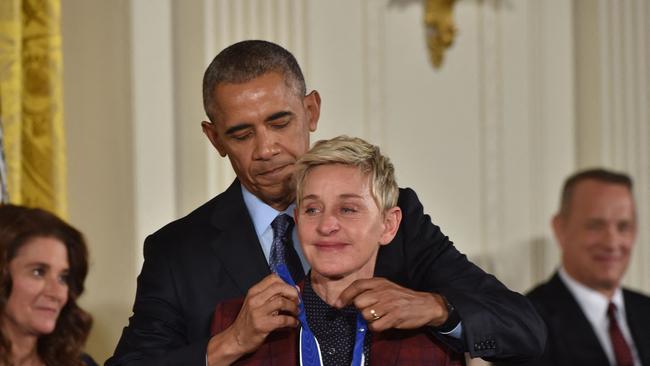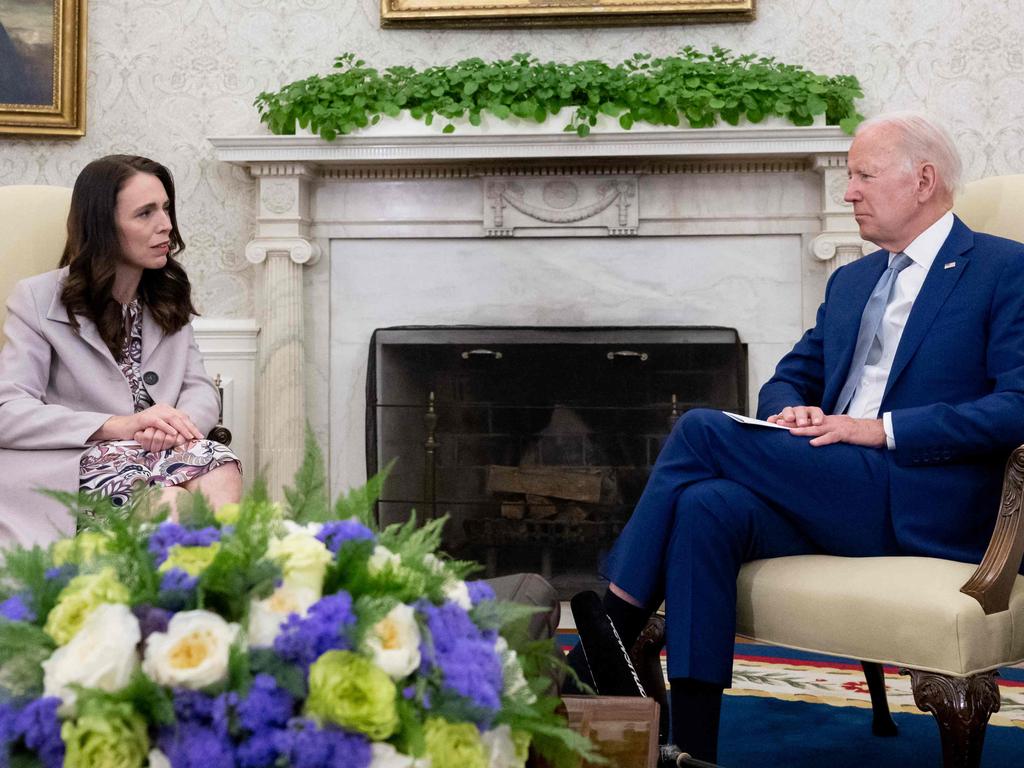American wokeness is giving China free rein in the Pacific
While Australia and the US slept, China succeeded in signing a comprehensive defence pact with Solomon Islands. The pact, announced in April, represents a major diplomatic coup for China.
Until recently the US, Australia and New Zealand have exercised a dominant influence in this resource rich part of the Pacific. Now China has expanded its influence into the South Pacific, the pre-existing balance of power has been called into question. That the Solomon Islands government felt empowered to reject Australia’s and the US’s objection to the pact indicates which way the wind is blowing.
Last month, then defence minister Peter Dutton attributed China’s success to an uneven playing field involving tactics with which no Australian government could compete. However, Dutton’s response is a case of crying over spilt milk. The reason why China succeeded is because its regime is fully versed in the art of realpolitik, while its Western competitors have become estranged from the imperative of geopolitics.
The Biden administration, in particular, has adopted a woke foreign policy that appears obsessive about exporting the cultural politics of identity to the rest of the world. Lecturing the world about the necessity of embracing the woke values of the Western cultural elites has become an integral feature of Biden’s diplomacy.
As it turns out, the project of woke colonialism sits uneasily alongside the pursuit of American – or for that matter Australian – geopolitical interests. Large parts of the world are positively turned off by America’s woke values, and their people resent being told how to lead their lives.
Recently, this point was underlined by Jose Ramos-Horta, a Nobel Peace prize winner who is President of East Timor. He warned South Pacific Island nations were turning towards China because of the patronising way they have been treated by Australia and the West. “Why would the Solomon Islands seek out China for support in maritime security and for the police?” he asked? He replied to his question by stating; “Maybe because the Solomon Islands’ closest neighbour, in this case Australia, has not responded to their need. Maybe their neighbour wasted time lecturing them on human rights instead of trying to help.”
What Ramos-Horta is really saying is that thanks to the geopolitical illiteracy of woke diplomacy, China was able to go some way towards realising its strategic objective in the South Pacific.

Since his election as President, Biden has behaved as if his nation’s foreign policy was an extension of the politics he promoted in America’s domestic culture wars. Consequently, American national interests have been often communicated through the project of exporting woke values on race, gender and sexuality to the rest of the world. With the zealotry of an old-school missionary, the US State Department insists that these values are integral to a democratic regime of human rights and therefore their acceptance is non-negotiable.
The Department of State has adopted the classical neo-colonial stance of lecturing foreign nations about what cultural values they should or should not adopt. Instead of dealing with the Chinese government as a formidable geopolitical opponent, Washington has taken it upon itself to treat Beijing politicians as if they are errant schoolchildren in need of an education on the finer points of human rights.
Last year, Secretary of State Antony Blinken was reminded by Chinese officials that they were not prepared to put up with his patronising lectures about human rights. In the lead-up to the Biden administration’s face-to-face meeting with Chinese officials in March 2021, Yang Jiechi, China’s top diplomat, accused Washington of taking a “condescending” approach to the talks and said the American delegation had no right to accuse Beijing of human rights abuses or give lectures on the merits of democracy. Yang stated that given America’s own issue with Black Lives Matter it did not have the authority to lecture any other nation about racism.
He added: “I don’t think the overwhelming majority of countries in the world would recognise the universal values advocated by the United States, or that the opinions of the United States could represent international public opinion.”
The American foreign policy establishment likes to present itself as a beacon for intersectional ideology. For example, at the request of the Biden administration the US’s International Trade Commission was asked to launch a fact-finding investigation to assist the promotion of trade policy initiatives that consider gender, race, ethnicity, wage and salary level – emphasising effects on the under-represented and underserved. The goal of what is being referred to as the Biden-Harris equity initiative is to use trade to promote a form of intersectional colonialism.
For its part, the Blinken State Department has gone out of its way to demonstrate its intersectional credentials. In June 2021, it boasted that led by Washington, “20 countries co-sponsored, its first-ever side event on the human rights of transgender women, highlighting the violence and structural, legal, and intersectional barriers faced by transgender women of colour”.

A few months later it was reported that the State Department was developing a “precept on diversity and inclusion” for foreign service promotion in order to ensure that the diplomatic corps was a diverse organisation. To show it meant business, it announced its first nonbinary gender passport. It also made a big deal of celebrating International Pronouns Day in early October. Through its Share American Blog, the State Department encouraged the public to “share their pronoun” including “ze/zir/zirs”. The department also boasted about the recent introduction of the prefix Mx on White House contact forms.
In April this year, the State Department published its Equity Action Plan designed to “Advance Racial Equity and Support for Underserved Communities in Foreign Affairs”. According to a media release issued by Blinken, henceforth the policy of promoting diversity and inclusion of “historically marginalised and vulnerable groups would become an integral feature of American policy”. The statement claims that the exclusion of vulnerable groups fuels “economic migration, distrust and authoritarianism”. In effect, the realisation of this Equity Action Plan requires the exportation of America’s cultural politics of identity throughout the world.
In March, Biden outlined his ambition for establishing a new world order based on woke values. He told a group of American corporate leaders that the world is changing and that “there’s going to be a new world order and we have got to lead it and we have got to unite the rest of the free world in doing it”.
It appears Biden seeks to achieve this objective by exporting the culture wars to the rest of the world. In this respect, his foreign policy is not unlike that of one of his predecessors, Barack Obama. Back in March 2014, Obama responded to Russia’s invasion of Crimea by issuing a high profile “Address to European Youth”. In this speech, he causally linked his condemnation of Russia’s behaviour in the Crimea with criticism of those who opposed his political agenda in the US. Obama celebrated identity politics and permissiveness and denounced the “older, more traditional view of power”. He boasted that “instead of targeting our gay and lesbian brothers and sisters, we can use our laws to protect their rights”. In the same breath, Obama was not only attacking Russia but also condemning populist and conservative parties in Europe for their reluctance to celebrate and embrace multiculturalism and immigration. In all but name, Russia also served as a proxy for his traditionalist foes in the US.
No doubt China welcomes America’s woke diplomacy. So long as Western nations are distracted from pursuing their geopolitical interests China can get on with the business of expanding its sphere of influence. For its part, Australia needs to wake up otherwise it will discover that China’s diplomatic coup in Solomon Islands is just the beginning of its expansion into the South Pacific.






Australia, along with many Western nations, has become estranged from the art of geopolitics. How else can one explain the fact that both Australia and close ally, the United States were so badly caught off guard by China’s recent expansion into the South Pacific?